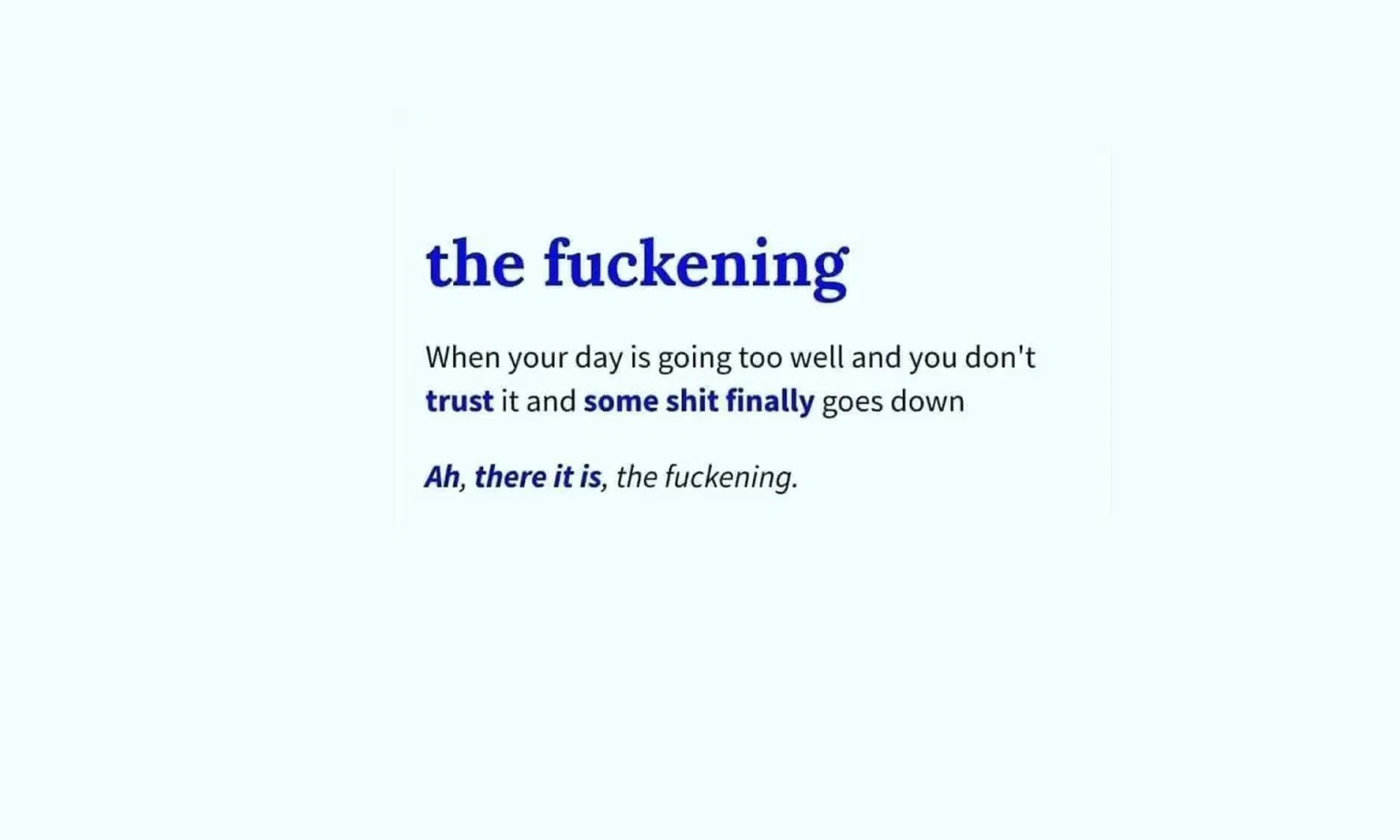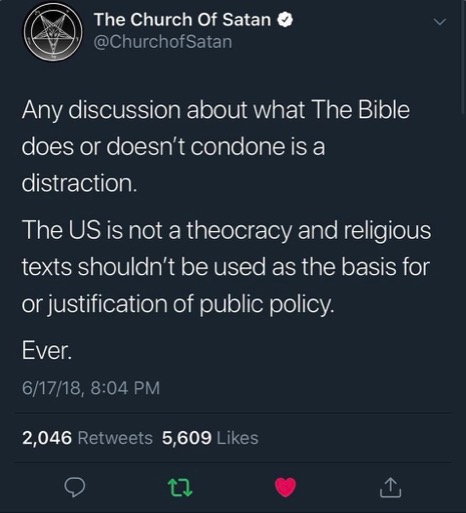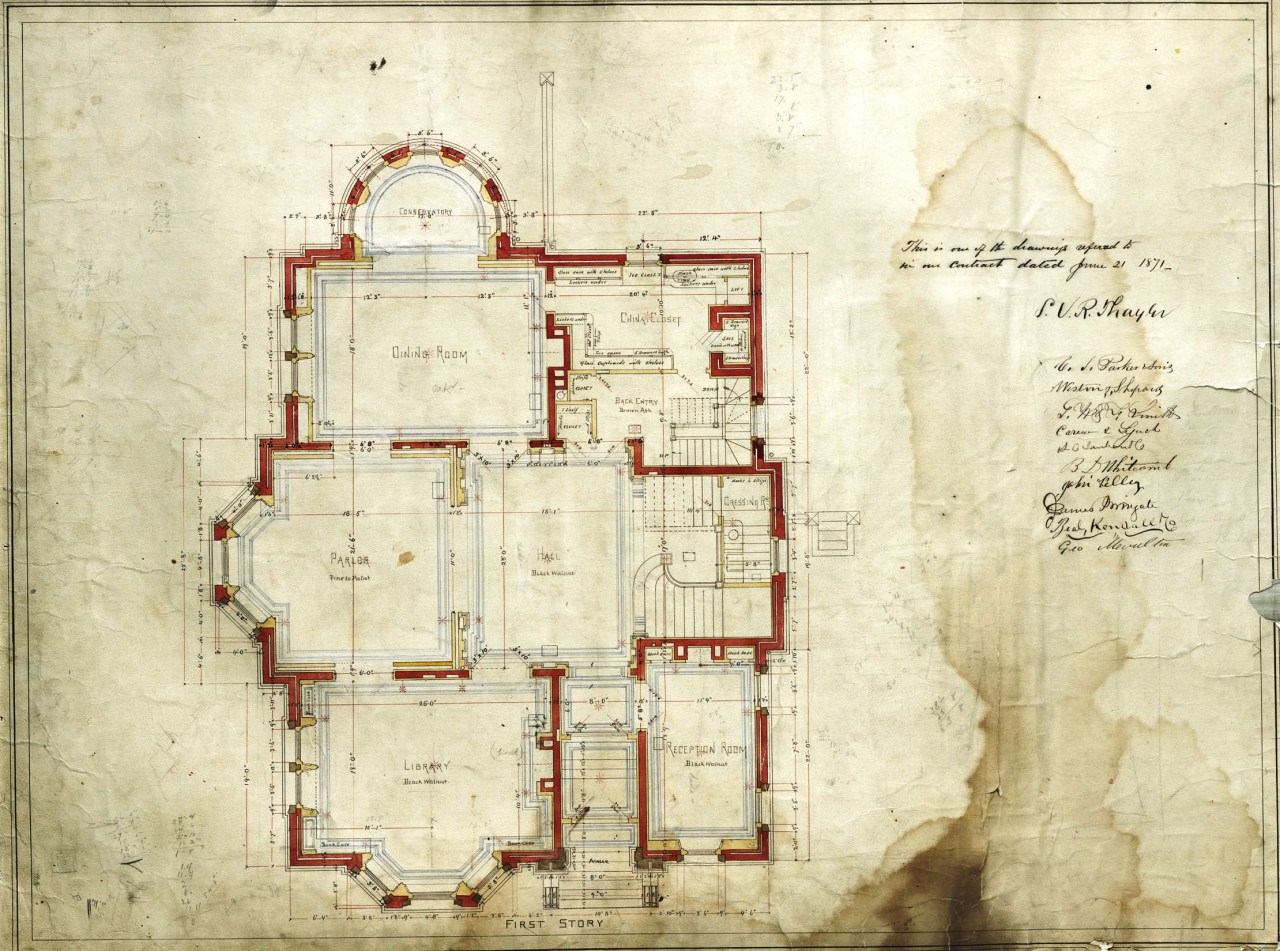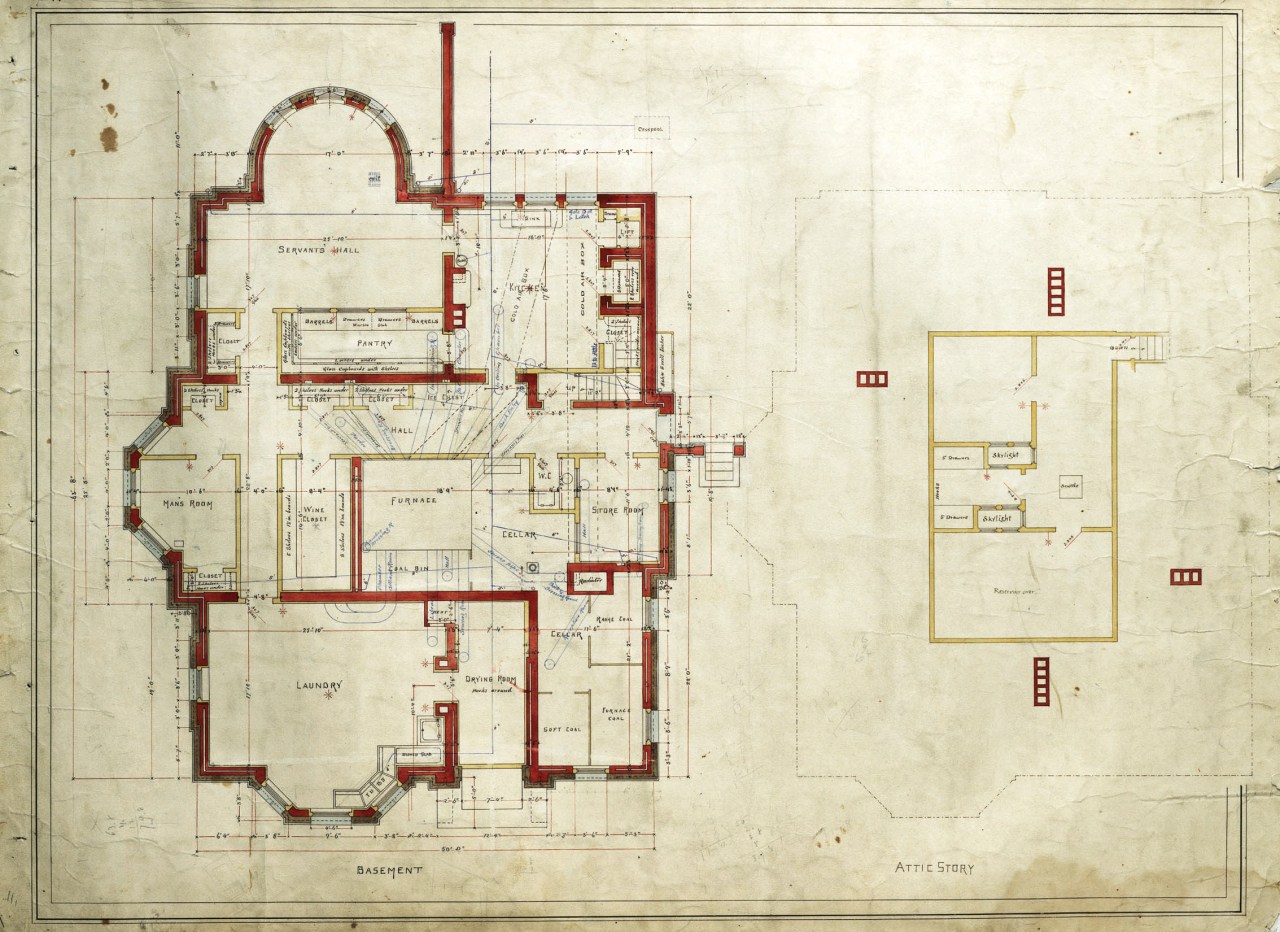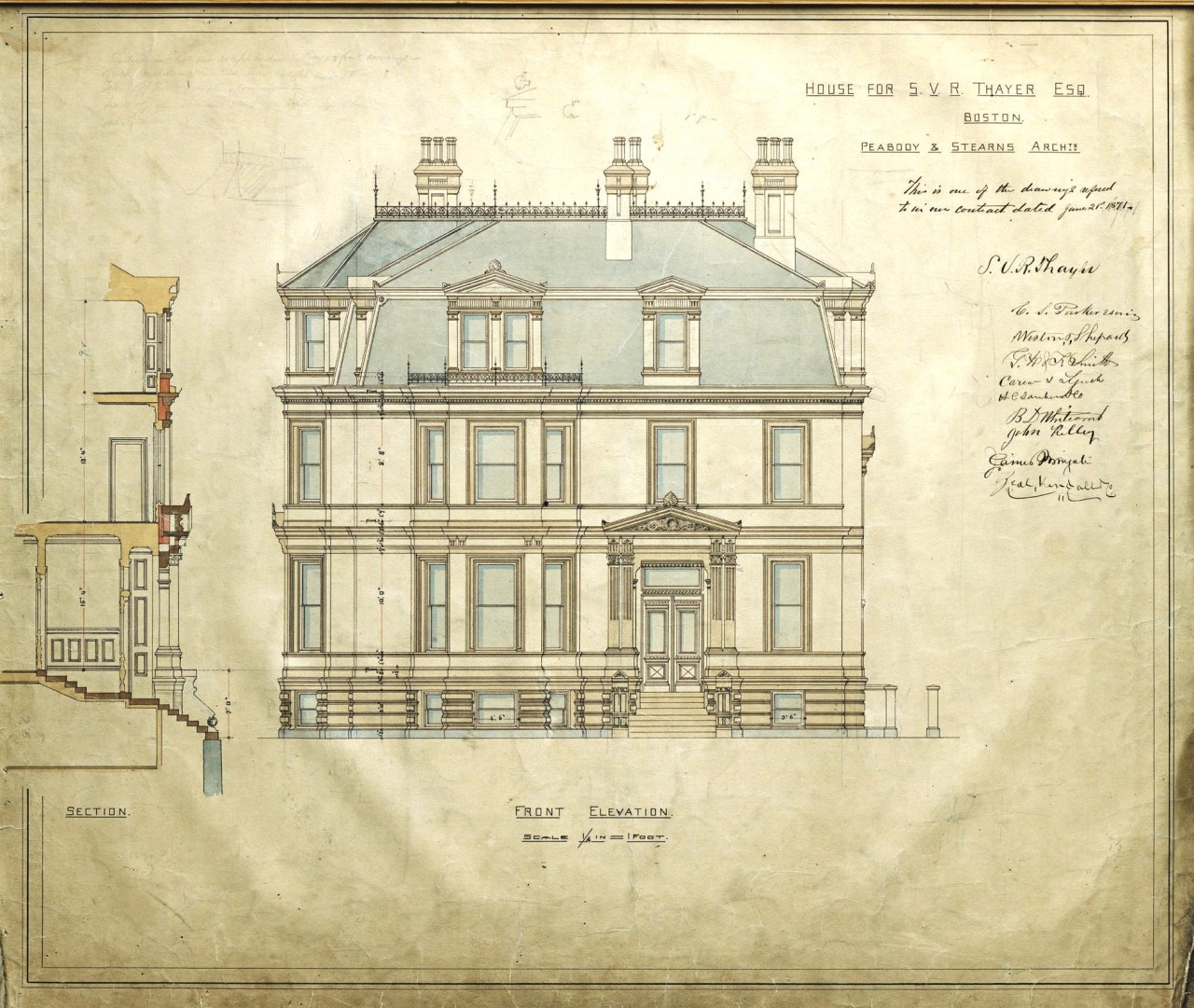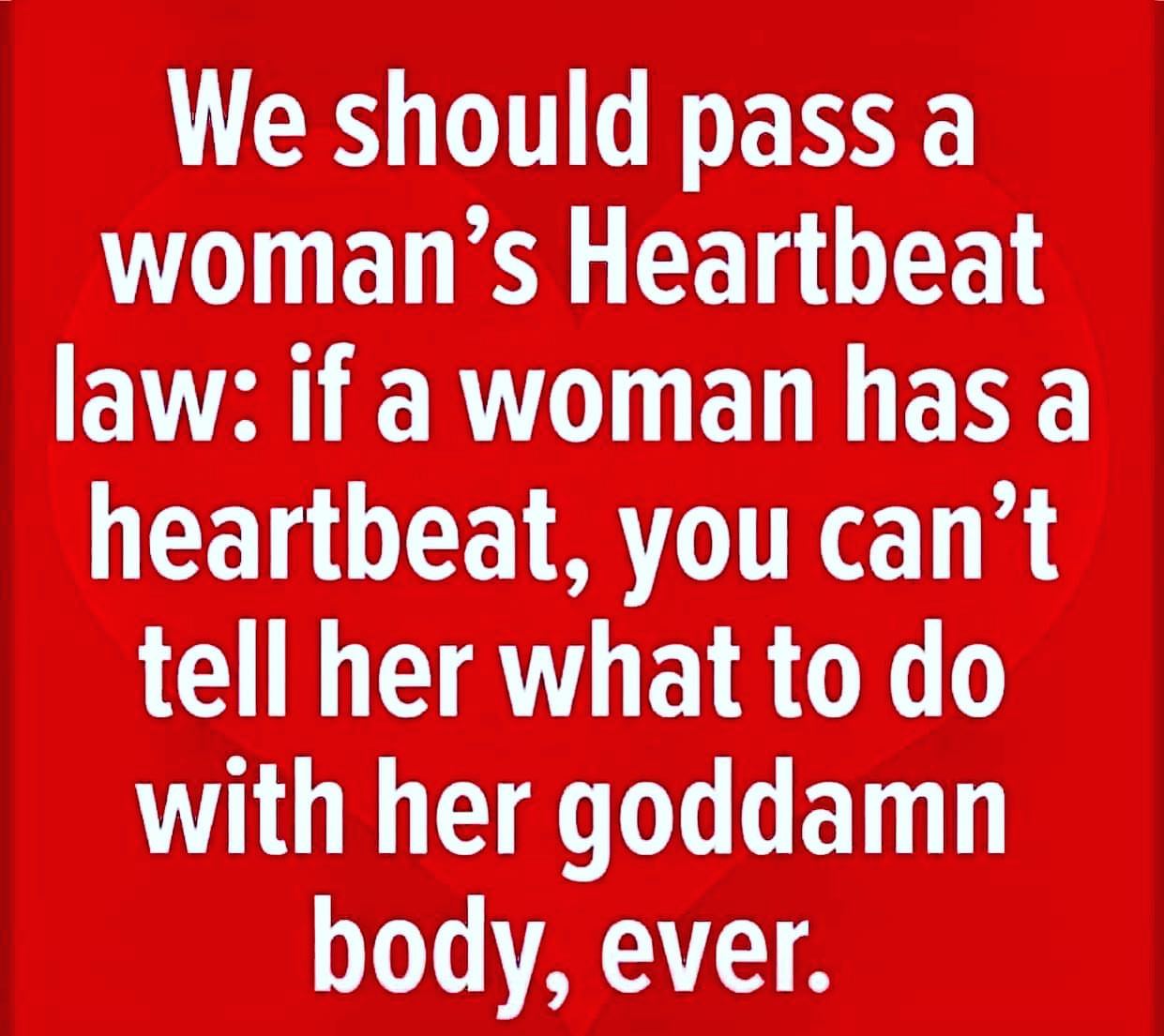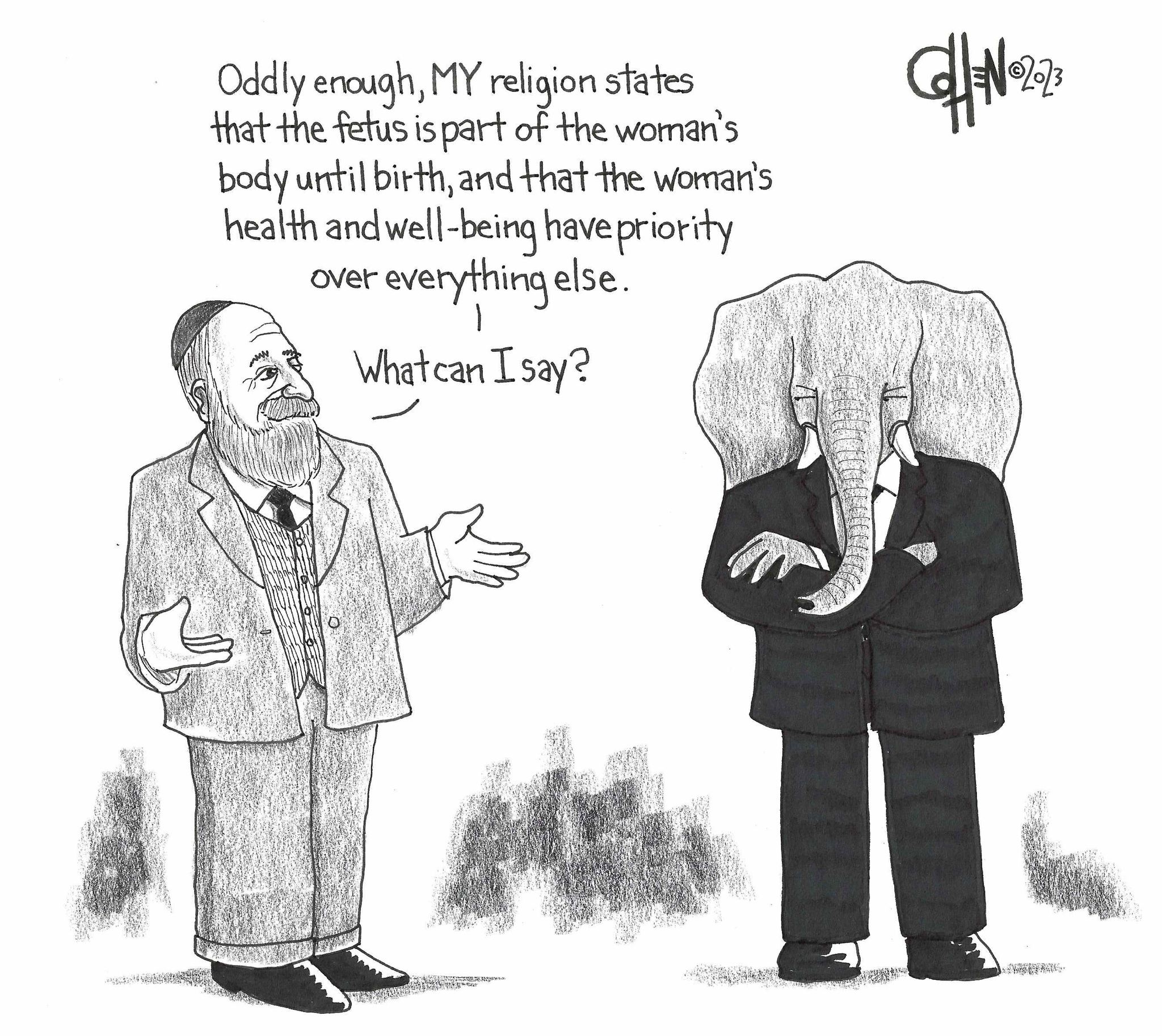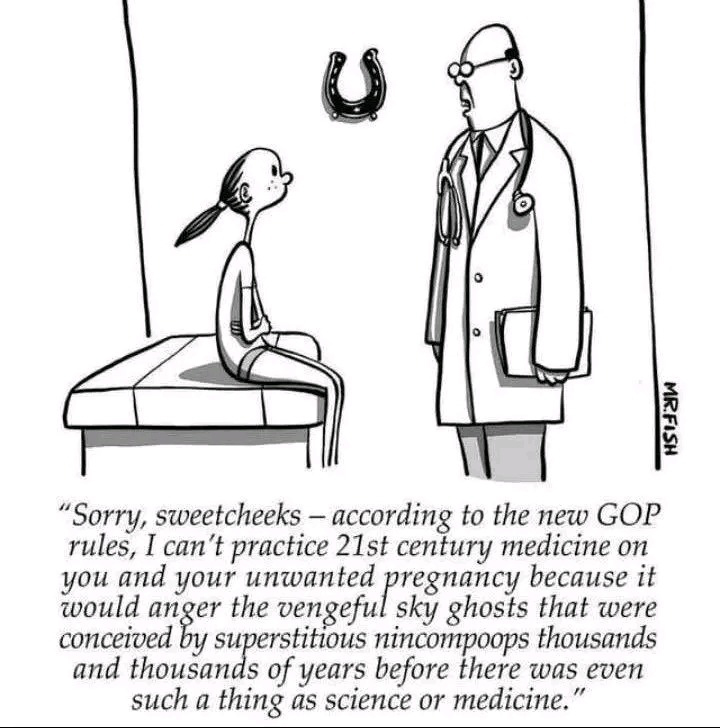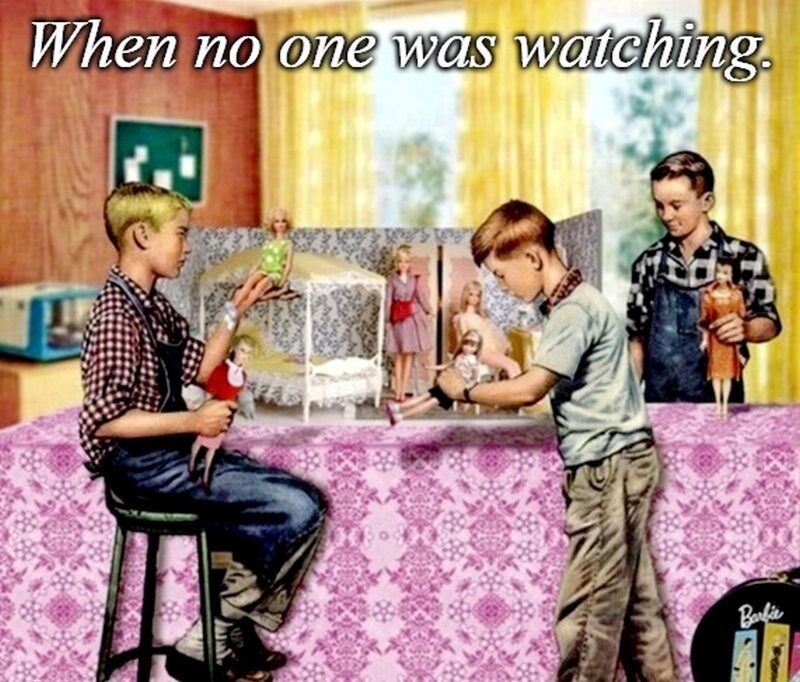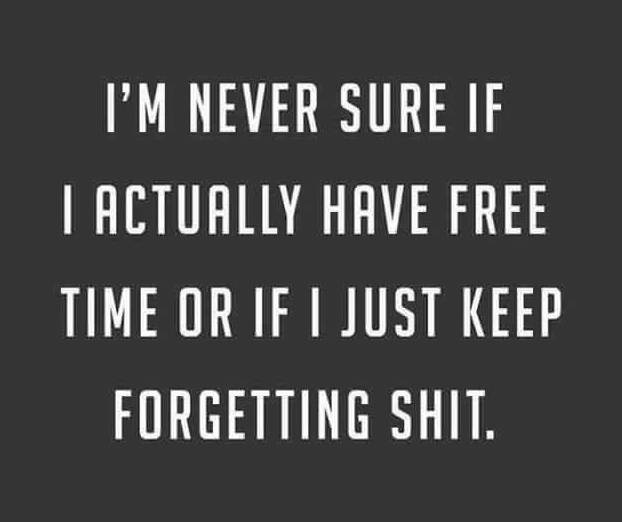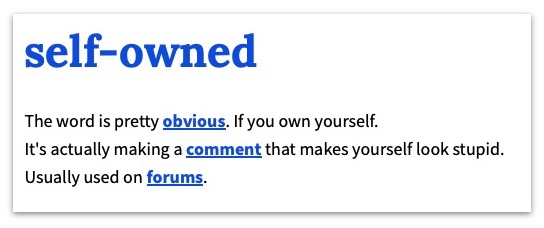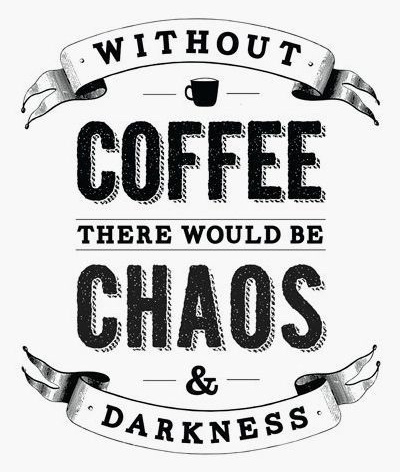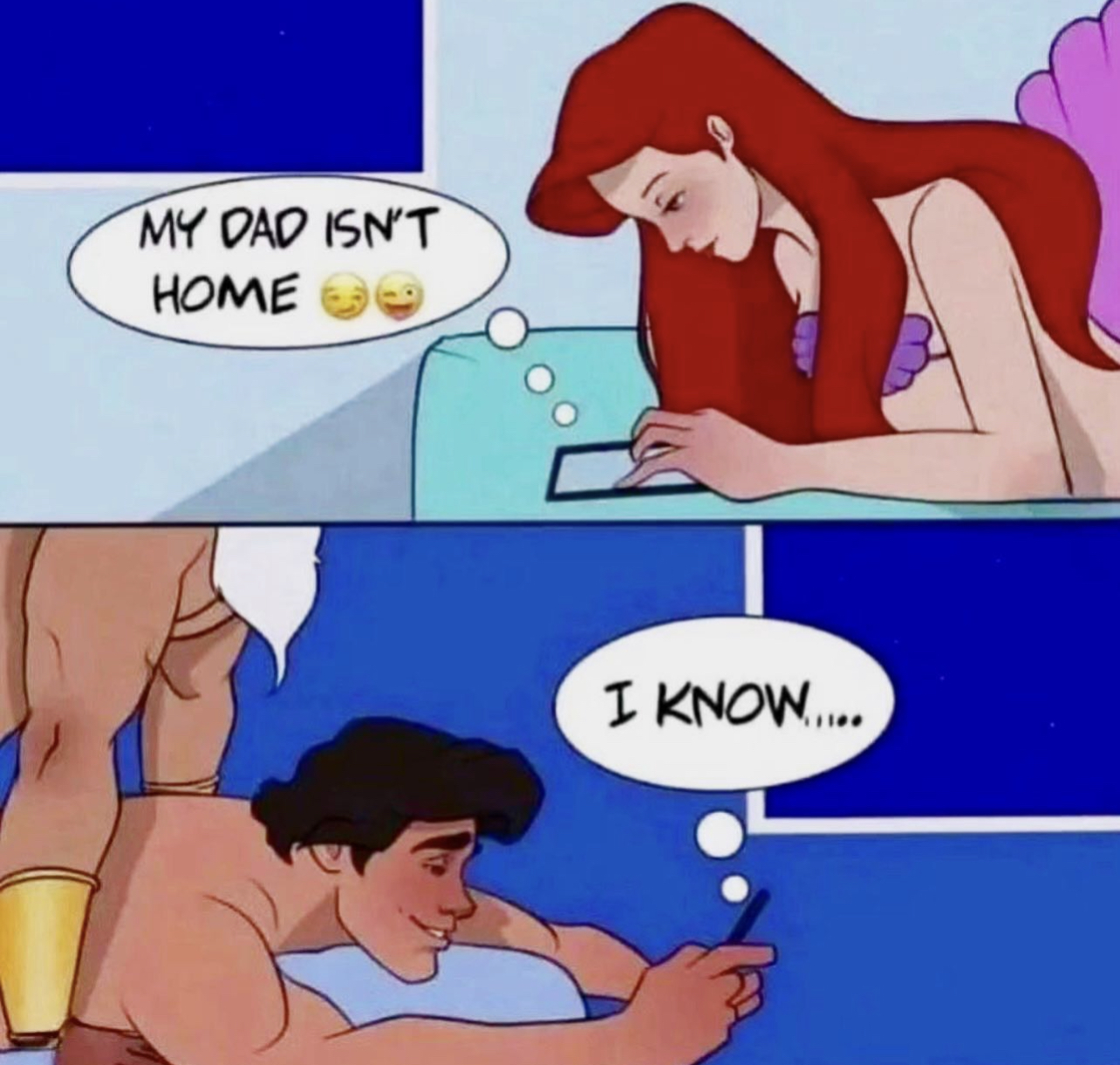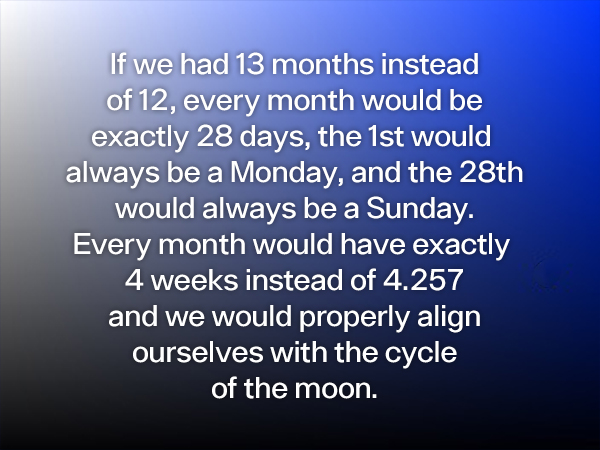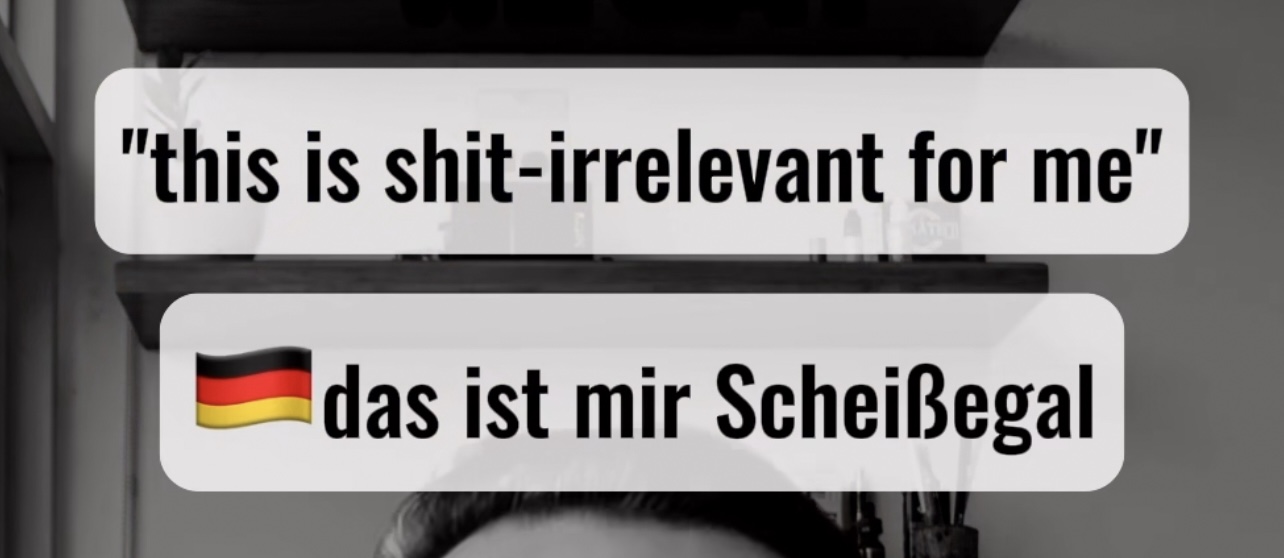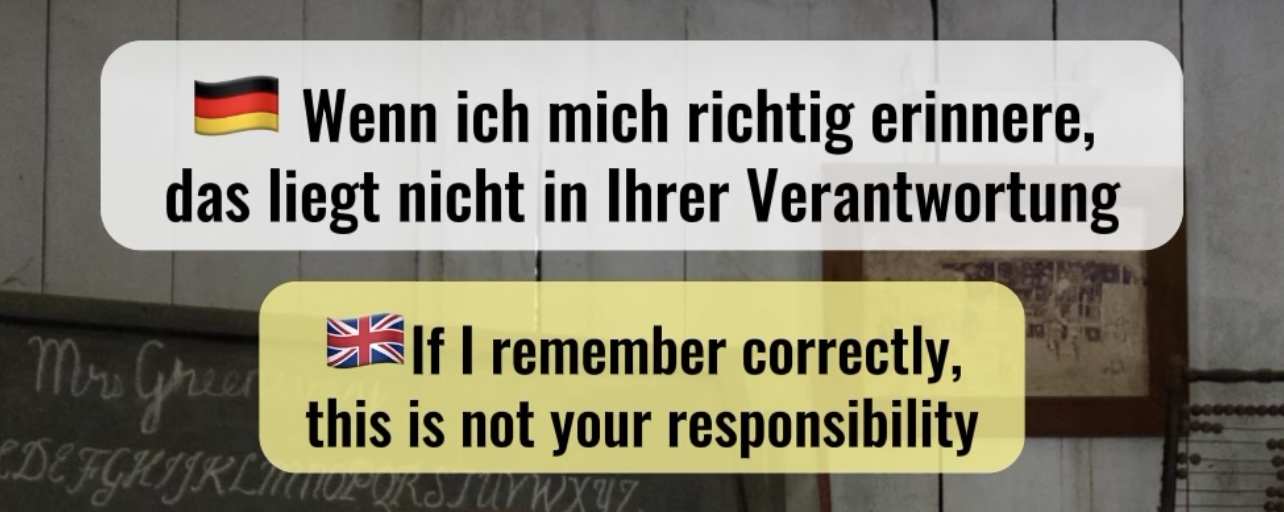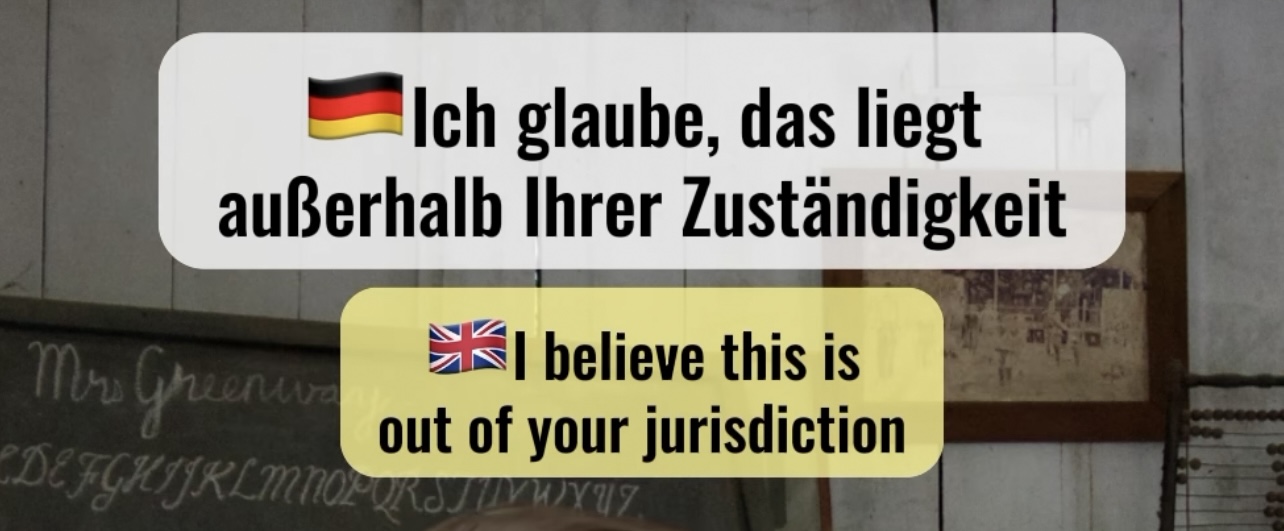Sunday Evening
This Weather Cannot Come Soon Enough
When Your Uber Driver Gives You That Look…
In Case Anyone Needs Reminding…
Dark Brandon Strikes Again! ?
Sunday Joke?
• An Oxford comma walks into a bar, where it spends the evening watching the television, getting drunk, and smoking cigars.
• A dangling participle walks into a bar. Enjoying a cocktail and chatting with the bartender, the evening passes pleasantly.
• A bar was walked into by the passive voice.
• An oxymoron walked into a bar, and the silence was deafening.
• Two quotation marks walk into a "bar."
• A malapropism walks into a bar, looking for all intensive purposes like a wolf in cheap clothing, muttering epitaphs and casting dispersions on his magnificent other, who takes him for granite.
• Hyperbole totally rips into this insane bar and absolutely destroys everything.
• A question mark walks into a bar?
• A non sequitur walks into a bar. In a strong wind, even turkeys can fly.
• Papyrus and Comic Sans walk into a bar. The bartender says, "Get out – we don't serve your type."
• A mixed metaphor walks into a bar, seeing the handwriting on the wall but hoping to nip it in the bud.
• A comma splice walks into a bar, it has a drink and then leaves.
• Three intransitive verbs walk into a bar. They sit. They converse. They depart.
• A synonym strolls into a tavern.
• At the end of the day, a cliché walks into a bar – fresh as a daisy, cute as a button, and sharp as a tack.
• A run-on sentence walks into a bar it starts flirting. With a cute little sentence fragment.
• Falling slowly, softly falling, the chiasmus collapses to the bar floor.
• A figure of speech literally walks into a bar and ends up getting figuratively hammered.
• An allusion walks into a bar, despite the fact that alcohol is its Achilles heel.
• The subjunctive would have walked into a bar, had it only known.
• A misplaced modifier walks into a bar owned by a man with a glass eye named Ralph.
• The past, present, and future walked into a bar. It was tense.
• A dyslexic walks into a bra.
• A verb walks into a bar, sees a beautiful noun, and suggests they conjugate. The noun declines.
• A simile walks into a bar, as parched as a desert.
• A gerund and an infinitive walk into a bar, drinking to forget.
• A hyphenated word and a non-hyphenated word walk into a bar and the bartender nearly chokes on the irony
– Jill Thomas Doyle
Ohhhh…That Explains It
As A New Week Dawns…
The Wealthy Have NEVER Lived Like The Rest Of Us
Appropriate Venue for ANYTHING Regarding Hunter Biden That Comes From The Republicans
Enough Of This Shit!
No Lie Detected
I'm Going With the Latter
Not To Mention Life Post 2016 in General…
Totally Oblivious
Play At Your Own Risk
Wanna Ride?
Get In There
Pitchers!
And Cats Laying Down With Dogs, and Who Knows What Else?
Impressive Skills
Yeah, yeah, I know it's "just" Photoshop, but it's still impressive the level of skill the artist uses to restore this old photograph. It's equally impressive the level of genertive AI that's used to recreate the missing parts of the childrens' faces.
? ? ?
Is There No Line He Can't Cross Without Being Held Accountable?
Just Putting This Out There As A Little Reminder…
From Inverse, originally published in 2018:
A CALENDAR WHERE EVERY MONTH IS 28 DAYS WOULD ACTUALLY MAKE A TON OF SENSE
Wednesday marks the last day of February, the shortest month in the Gregorian calendar. It doesn't have to be this way, according to some advocates who propose a calendar where every year is 13 months and every month is 28 days. It sounds like a drastic change to a calendar that's been in use since 1582, but dig a little deeper and the idea makes a lot of sense.
The idea is simple. Each month has four, seven-day weeks, making a total of 28 days. There are 13 months in a year, totaling 364 days, with a new month in between June and July called "Sol" to mark the summer solstice. The leftover day is a special Year Day, with two such days every four years.
The idea was first proposed by British railway worker Moses B. Cotsworth, who devised it in 1902 as a way of making his job easier. George Eastman, head of Kodak, used the calendar in his company from 1924 to 1989, but employees didn't live their lives by the strange structure and stuck to Gregorian outside of work. A proposal put forth to the League of Nations attracted a great deal of interest, but that too fell by the wayside as World War II disbanded the league.
The design has a number of advantages. It means the 8th is always a Sunday no matter the month, and the same applies to every other day. Holidays like Thanksgiving wouldn't move around the calendar anymore. Monthly and quarterly data becomes easier to compare, with both measurements an equal number of days. It also means never checking when the month ends.
The idea has since occasionally come up in fiction. The Simpsons lampooned the idea during a Treehouse of Horror Halloween special, where a particularly spooky segment takes place on the 13th day of the 13th month. Marge explains that the school calendars were misprinted, and Homer can be heard complaining about the "lousy Smarch weather."
The Simpsons episode actually raises one of the downsides of the calendar. It would mean having a 13th month every year, and also means every month would contain a Friday the 13th. It may sound like a small detail to some, but don't forget that Microsoft never released a version 13 of Office, and data from 2015 showed 574 Manhattan condos lack a 13th floor. Don't underestimate the power of superstition.
Germans Don't Say…
That Kid Knows Bullshit When He Hears It
Catchers!
We're Fucked
Average change in the average global temperature over the past 143 years.
